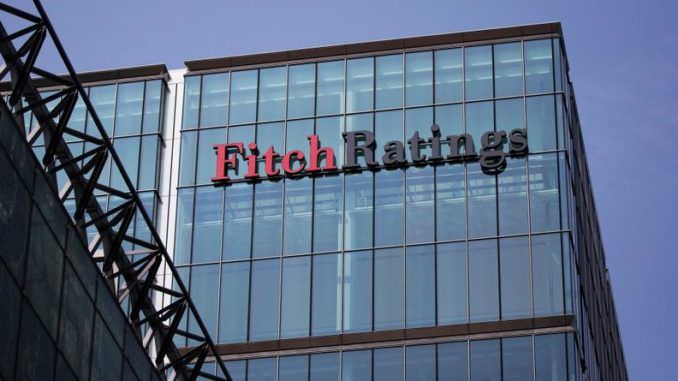
Global credit rating agency Fitch Ratings has maintained Nigeria’s Long-Term Foreign-Currency Issuer Default Rating (IDR) at ‘B’, accompanied by a stable outlook. The affirmation reflects the country’s strengthening foreign exchange liquidity and continued monetary and fiscal reforms, even as challenges such as high inflation and governance weaknesses persist.
In its latest assessment released Friday, Fitch highlighted Nigeria’s large and diversified economy, liquid domestic debt market, and significant oil and gas reserves as key strengths underpinning the rating. However, the report also pointed to ongoing concerns including inflationary pressures, security challenges, and weak revenue generation outside the oil sector.
“Nigeria’s ‘B’ rating benefits from a relatively developed domestic debt market and improved exchange rate policies,” Fitch said. “Nonetheless, the rating is constrained by persistent governance issues, high dependence on hydrocarbons, and structural weaknesses in non-oil revenue.”
FX Liquidity Strengthens; Monetary Policy Stabilizes Currency
Fitch applauded the Central Bank of Nigeria’s (CBN) recent reforms that have enhanced foreign exchange market operations, leading to greater liquidity and relative naira stability. Foreign reserves stood at $42 billion as of September 2025, surpassing the median for comparable ‘B’ rated economies, with a forecasted slight dip to $40 billion by the end of 2026, equivalent to about 5.8 months of import cover.
The agency also noted an improvement in Nigeria’s current account, which posted a surplus of 6.8% of GDP in 2024, up from 1.3% the previous year. This was driven by stronger remittance inflows and reduced oil import costs thanks to increased domestic refining capacity.
Inflation Remains High but Shows Signs of Easing
While Nigeria’s inflation rate remains among the highest within the ‘B’ rating peer group, it has moderated from 33% in 2024 to 20% as of August 2025. Fitch expects inflation to continue its downward trend, projecting a rate of around 17% by 2027. The CBN’s September decision to cut its policy rate by 50 basis points to 27%—its first reduction since 2020 reflects efforts to balance inflation control with currency stability.
“We anticipate further cautious interest rate cuts as the CBN seeks to sustain naira stability while supporting disinflation,” Fitch noted.
Fiscal Deficit and Debt Outlook
Fitch forecasts Nigeria’s budget deficit will widen to an average of 3.1% of GDP between 2025 and 2026, fueled by rising public wages, increased security expenditure, and election-related spending ahead of 2027. New tax laws effective from January 2026 are expected to boost revenue to 12.4% of GDP by 2027, though this falls short of the government’s 16.2% target and the ‘B’ median of 17.8%.
Public debt is projected to ease slightly to 37% of GDP by 2027, down from 39% in 2024, supported by nominal GDP growth and domestic debt financing. However, interest payments are forecast to consume up to 43% of government revenues in 2025, before easing somewhat.
Moderate Economic Growth and Oil Production Recovery
Fitch predicts real GDP growth of 4.2% in 2025, bolstered by exchange rate stability and increased oil output. Oil production (excluding condensates) is expected to average 1.5 million barrels per day in 2025, up from 1.34 million barrels in 2024, though still below pre-pandemic levels.
“The relative stability of the FX market should support non-oil sector activity, but high inflation and interest rates will limit growth momentum,” Fitch warned.
The agency also highlighted that Nigeria’s banking sector will need to adjust to new capital requirements by the end of 2025, as the CBN phases out regulatory leniency on loan classifications.
Governance and Outlook
Fitch maintained Nigeria’s ESG (Environmental, Social, Governance) Relevance Score at ‘5’ for concerns over political stability, institutional quality, and corruption control, reflecting ongoing institutional weaknesses.
The outlook remains stable but could improve if Nigeria successfully implements reforms that reduce inflation, boost revenue mobilization, and strengthen economic growth. Conversely, fiscal slippage, policy reversals, or renewed foreign exchange market pressures could trigger a downgrade.
“Sustained progress in disinflation and improved governance could support an upgrade, while renewed external liquidity stress or weakening fiscal discipline pose downgrade risks,” Fitch concluded.



